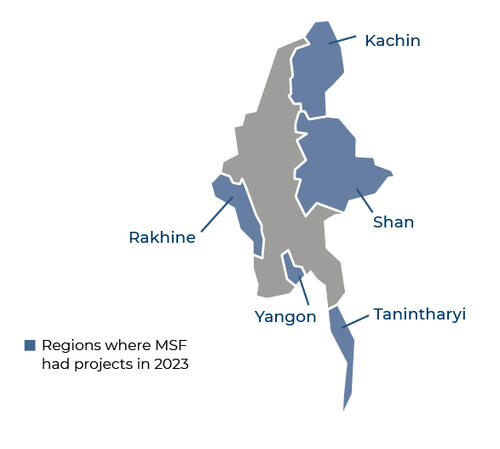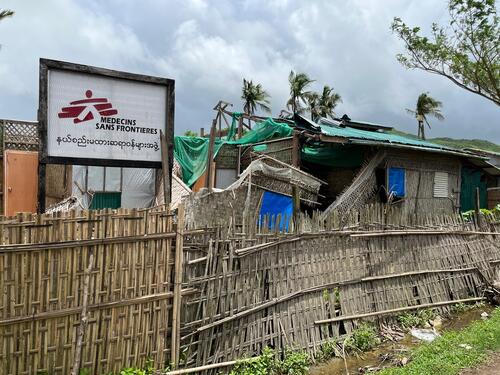MSF teams continue to care for HIV, tuberculosis and hepatitis C patients, provide basic healthcare and reproductive and sexual healthcare services, and to respond to medical emergencies.
We pioneered HIV treatment in Myanmar – at one point becoming the largest provider of antiretrovirals in the country – and steadily grew a large patient cohort. In 2015, we began working with the Ministry of Health to transfer patients to the decentralised National AIDS Programme, so people can receive care closer to home. This has been suspended since the military seized power, and we are now seeing those patients return to us in greater numbers at our clinics in Shan, Kachin and Tanintharyi.
Despite restrictions on humanitarian access to conflict-affected areas, we have mobile teams based in Sittwe and Maungdaw in Rakhine state, who offer basic healthcare. They also arrange emergency referrals for patients from all communities, including those forcibly detained in camps.
Our activities in 2023 in Myanmar
Data and information from the International Activity Report 2023.
1,330
1,33
€17.7 M
17.7M
1992
1992


181,600
181,6
3,340
3,34
1,600
1,6

190
19

One month after Cyclone Nargis: Hope and despair

How national staff bore the brunt of MSF aid effort in first days of Myanmar's cyclone disaster

Thousands in Myanmar still have received no aid three weeks after Cyclone Nargis

More visas, expert staff and supplies still needed to cope with the huge needs of Cyclone Nargis survivors

Increasing MSF staff presence essential to delivering more aid, faster in Delta region




